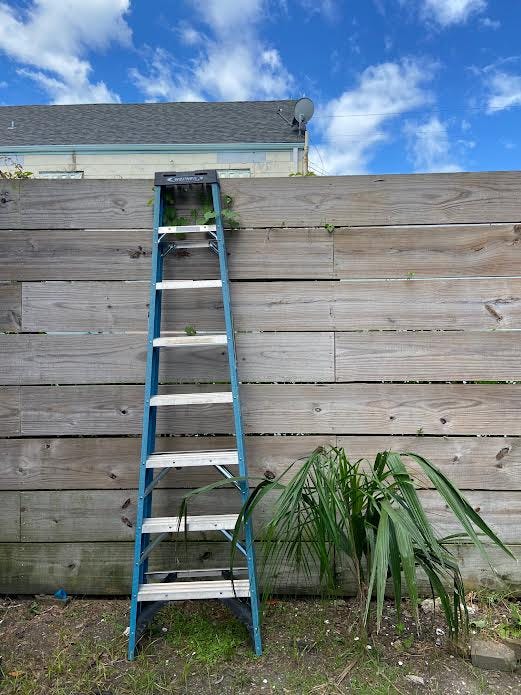Hi friends.
A friend called me the other day wanting to talk about writing. He had just finished the first draft of his first novel. He had a question, what might have seemed like a basic question at first. What did I think about flashbacks? We began to chat about it. He wanted to know: Did they interrupt the flow of the story? Were they awkward? I thought maybe he was asking: Was the past an interruption of the present tense?
I was in the backyard while I was talking to him, earbuds in. Weeding and trimming. The backyard turned into a mess during the time I was evacuated after the hurricane. I lost a lime tree, the elephant ears ran roughshod. Didn’t matter if I was there or not: everything was living and breathing and moving and growing in the heat and the sunshine and the rain. No one to tend to it, so it did as it pleased. I thought I had been making progress these past few months but all I had been doing was warding off the wildness. I loathe to call it a garden at the moment and am thinking of it more just as a home for whatever feels like living there. But I’m working on it.
I like doing two things at once, talking and gardening, or maybe it’s three things: thinking and talking and gardening. I don’t teach a lot, barely at all anymore since these days of the pandemic, and sometimes writing these letters is the best way to figure out what I know or think or believe about writing. It’s been a while since I heard someone ask me a question like that out loud. It felt weird (and good) to respond.
I talked for little bit about how things that have happened in the past can be happening to us forever. “Not past lives, I’m not talking about that,” I said. I didn’t want to sound hippy-dippy. “But you know, something that happens to you when you’re six can impact who you are for the rest of your life. So even though you’re looking back in time it’s really part of the story now.” These things that happen twenty years ago, ten years, last year, they form who you are. These events sit in your bones.
I recognize that “flashback” is a technical term, and technical terms serve a purpose. Respect to the idea of craft. But I have begun to think of flashbacks as just scenes. Anything that has happened in the past can impact or be a part of the present tense of the story – whenever that present tense might be. Everything that has happened to you (or a character) is always in a state of defining you (or them).
All this goes for flash forwards, too, of course. The challenges of telling a part of the story set in the past or the future have less to do with the story itself and more to do with the transitions to arrive there. As long as you situate the reader gently and clearly, in my mind, the whole story is happening right now, as you are telling it. There is a present tense to a book that is invisible to everyone but you, the author.
A piece of fiction is just a timeline of events told beautifully. Put your finger on a spot on that timeline. In the beginning, the end, or the middle. Now just tell us what happened. We’re listening.
The #Mini1000 starts this Saturday, so this newsletter will disappear next week. I’m also going to take off the first week of November because it will be my birthday and I feel like it and I am a goddamn Scorpio so you know I’m going to do what I want.
See some of you this weekend! I’m excited.
Jami
You are reading Craft Talk, the home of #1000wordsofsummer and also a weekly newsletter about writing from Jami Attenberg. I’m also on twitter and instagram. I try to answer comments as best I can, which are open to paid subscribers. You can subscribe here or give a gift subscription here. (If you are a teacher let me know, and I will give you a free subscription.) Fifty percent of the proceeds will go to various cultural, educational, and social justice organizations in New Orleans (and sometimes elsewhere). This week’s donation went to The Helio Foundation.






Jami, this makes me think so much of "All Grown Up." The present and the past happen so clearly and seamlessly in that book. So simple and breathtaking.